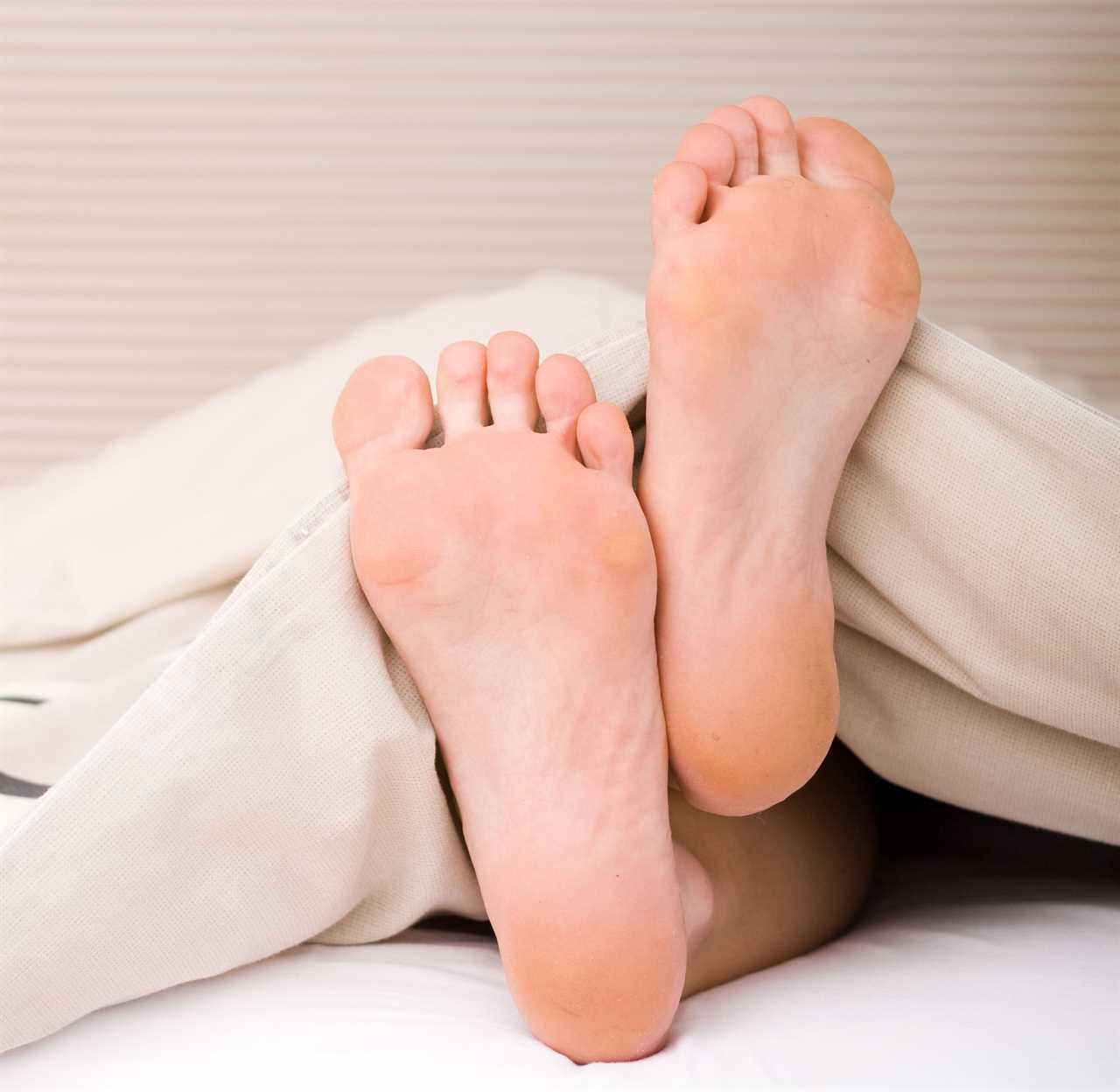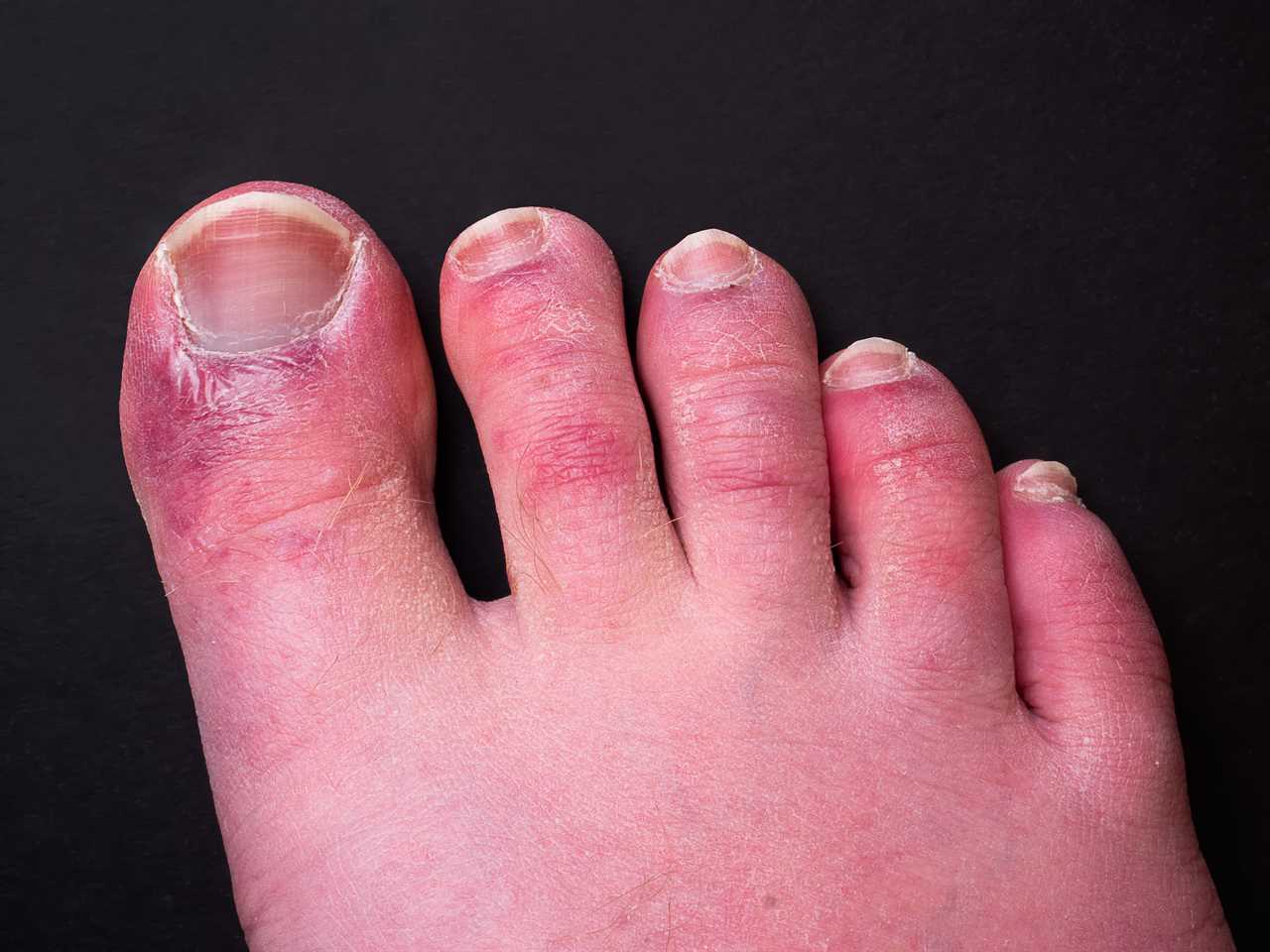MOST people just get a slight headache, tiredness or aches after a Covid vaccine dose.
But rarely, people experience a bizarre side effect in their feet which experts say is more frequent in the colder months.

It comes during the winter booster vaccine programme, when the NHS is focusing on giving top-up doses to all those over the age of 40.
Britons have been told they must get their booster shot in order to save Christmas.
Vaccines trigger the immune system to create a response to a pathogen, in this case the coronavirus, so that it is prepared for real infection.
As the body builds up protection, this creates side effects.
They are a sign that everything is working, experts say, and shouldn’t scare people away from getting their next dose.
While feeling “under the weather” may be expected after a jab, a skin reaction is rather unusual.
There are reports that some people experience “Covid toes” after vaccination with either Pfizer or Moderna – both messenger RNA (mRNA) vaccines.
It causes swelling, itchiness, bruising or blistering around the toes.
Covid toe was first acknowledged as a symptom of coronavirus infection more than a year ago.
But Esther Freeman, associate professor of dermatology at Harvard Medical School, said it was a “novel” finding that some vaccine recipients have developed Covid toe.
It may be triggered by the same immune response that sets off “Covid arm”, a more commonly reported side effect of inflammation and a red rash-type reaction where the injection was.
Prof Freeman told the Washington Post in April: “We have been seeing other types of post-vaccine skin reactions on different parts of the body, in addition to rashes on the inoculated arm.
“These reactions are unusual and generally mild, and typically resolve on their own or with over-the-counter treatment.
“Even though skin reactions to a vaccine can look scary, most are not severe or long-lasting, and show us that your body likely is developing a nice strong immune response to the vaccine, which is a good thing.”
Experts say the random side effects is offset by cold weather, but it’s not clear why.
In a scientific paper co-authored by Prof Freeman, experts said the symptoms were similar to pernio or chilblains, which both cause itchy red swellings in response to cold weather.
Both these conditions are thought to occur because the cold makes the blood vessels restrict.
“It [Covid toes] doesn’t happen in the summer,” says Beth Drolet, professor and chair of dermatology at the University of Wisconsin School of Medicine and Public Health.
“The toes can stay blue for weeks, but eventually go back to normal”, she said.
Covid toes appear to be among the rarer skin reactions.
The paper reported it eight times among 443 skin problems following mRNA vaccine.
Other skin complaints documented by dermatologists include hives, measles-like rashes, herpes flare ups and a full body rash similar to pityriasis rosea.
Covid toes were reported far less after the second dose than the first, and therefore may be even rarer following a booster shot.
A study by allergists at Massachusetts General Hospital found almost two per cent of 49,197 who were jabbed reported skin reactions – making the side effects very rare.
Prof Freeman believes the condition could be related to a robust production of alpha interferon, an inflammatory protein made by white blood cells.
This, according to her, is the mechanism behind Covid toes in those naturally infected with the virus.
Others say it’s because the skin has ACE2 receptors, and the Covid spike protein – whether through infection or vaccination – binds to those receptors.
Researchers who looked at 50 participants with Covid toes and 13 with similar chilblains lesions said in both conditions, the body generated an immune response with high levels of certain autoantibodies.
This then leads them to mistakenly target and react with a person’s own cells and tissues as well as the invading virus.
Sun columnist Dr Zoe Williams said having side effects to a vaccine is actually a good thing.
“It doesn’t mean you are seriously infected, it means your immune system is kicking in and is primed to jump at the first sign of a Covid infection,” she said.







